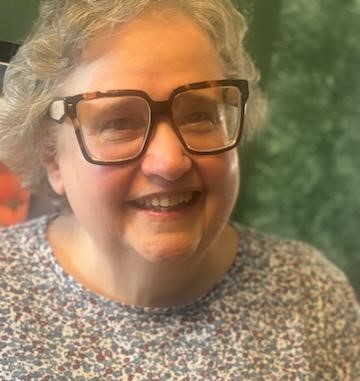Kathryn's Story
Volga Germans in Nebraska: History and Inspiration for Sparrow’s Song
Hastings, Nebraska, is the real town behind Gorham, Nebraska, the fictional setting of Sparrow’s Song. Its Volga German heritage provides the foundation for the novel’s imagined community, where local history and immigrant identity converge in story form. Volga Germans left Russia in the late nineteenth and early twentieth centuries, seeking new opportunities across the Great Plains. In Nebraska, they established strong communities not only in Hastings but also in Lincoln, Sutton, Grand Island, Scottsbluff, Gering, Alliance, Aurora, Harvard, and York. Their presence shaped the cultural and economic landscape of the state, adding to the broader story of immigrant settlement in the Midwest. Nationally, Volga Germans built lasting communities in Kansas, Colorado, North Dakota, South Dakota, and California. Across the Canadian plains—particularly Alberta, Saskatchewan, and Manitoba—families carried forward traditions of farming, faith, and resilience. Hastings remains central to this history, and Gorham in Sparrow’s Song reflects its role as a hub of Volga German life.
Forever Sparrow's Song: A Life Between Belonging and Becoming
Kathryn’s Story (working title Sparrow’s Song) showcases the historical research behind my forthcoming novel, working title Sparrow’s Song, about a German-from-Russia immigrant who joins the Army School of Nursing during WWI and later teaches in a Cadet Nurse Corps school during WWII. I share what I’ve learned about early twentieth-century nursing education, the German-from-Russia immigrant experience in Nebraska, life in 1930s New York City, and much more. These posts are a small way to share the bits of history that helped me build the world that Kathryn inhabits. So why is the working title Sparrow’s Song?
The Kipp Factory and the Women Who Worked There: A Look at Hastings, Nebraska’s, Cigar-Making Boom and the Women Behind It

Before Kool-Aid, There Were Cigars:
Shortly before Hastings, Nebraska, became known as the birthplace of Kool-Aid, it was a cigar town. In the early 1900s, six cigar factories operated downtown, producing millions of hand-rolled cigars each year. The work was rhythmic and exacting, carried out largely by young immigrant women from the local community of Germans-from-Russia. Paid by the piece and trained to roll with speed and precision, these women shaped not only the cigars but the town’s industrial identity.
At the beginning of my forthcoming debut novel, my protagonist Kathryn’s life mirrors the working lives of these real-life women, who sorted tobacco leaves, packed bunches by feel, and rolled wrappers with practiced hands. Their work was tactile, communal, and quietly skilled.
This post offers a glimpse into cigar making in 1916 Hastings, including its tools, techniques, and textures, as well as the rise of the Kipp Cigar Company, which once produced half of Nebraska’s cigars. Though the industry faded and some of its buildings are gone, the legacy of Hastings’ cigar makers endures. For those of us with ties to this town, it’s a story worth remembering.
Kathryn’s Story and Two Federal Nursing Educational Programs
Kathryn Scheibel, the protagonist of my forthcoming novel Sparrow’s Song, begins her nursing career as a student in the Army School of Nursing in 1918 during World War I. Years later, in 1943, she’s teaching in a school that joins the Cadet Nurse Corps, the federal nurse training program created to address the nursing shortage during World War II.
This post shares the historical background of both programs—how they were formed and how students were recruited. Kathryn’s story is rooted in these efforts and in the challenges faced by women who didn’t come from privilege. As a poor ethnic German, she confronts prejudice in her student years. Again, as an instructor, she fights against unjust treatment when her school admits its first Black students.

